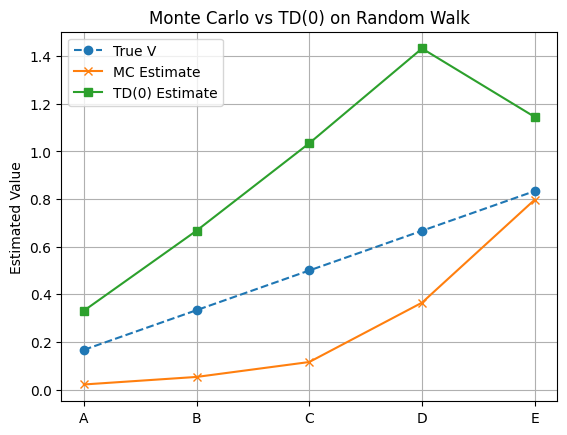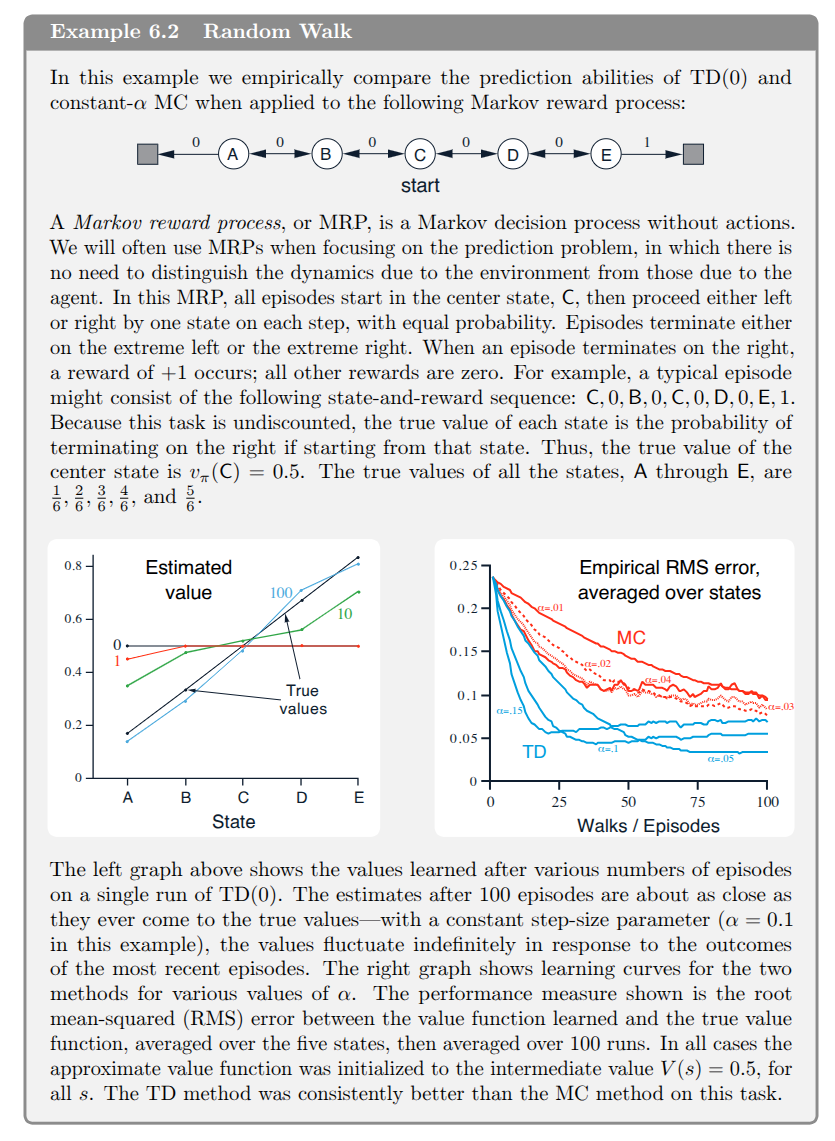It is instructive to see the difference between MC and TD approaches in the following example.
import numpy as np
import matplotlib.pyplot as plt
states = ['A', 'B', 'C', 'D', 'E']
state_to_index = {s: i for i, s in enumerate(states)}
n_states = len(states)
def generate_episode(start='C'):
state = state_to_index[start]
episode = []
while True:
action = np.random.choice([-1, 1]) # left or right
next_state = state + action
if next_state < 0:
return episode + [(state, 0)] # Left terminal, reward 0
elif next_state >= n_states:
return episode + [(state, 1)] # Right terminal, reward 1
else:
episode.append((state, 0))
state = next_state
def mc_prediction(episodes=1000, alpha=0.1):
V = np.full(n_states, 0.5)
#V = np.zeros(n_states)
for _ in range(episodes):
episode = generate_episode()
G = episode[-1][1] # Only final reward matters
for (s, _) in episode:
V[s] += alpha * (G - V[s])
return V
def td0_prediction(episodes=10000, alpha=0.01):
#V = np.zeros(n_states)
V = np.full(n_states, 0.5)
for _ in range(episodes):
episode = generate_episode()
for i in range(len(episode) - 1):
s, _ = episode[i]
s_next, r = episode[i + 1]
V[s] += alpha * (r + V[s_next] - V[s])
# final transition
s, r = episode[-1]
V[s] += alpha * (r - V[s])
return V
# Run both methods
V_mc = mc_prediction()
V_td = td0_prediction()
# Ground truth (analytical solution): [1/6, 2/6, 3/6, 4/6, 5/6]
true_V = np.array([1, 2, 3, 4, 5]) / 6
# Plot results
plt.plot(true_V, label='True V', linestyle='--', marker='o')
plt.plot(V_mc, label='MC Estimate', marker='x')
plt.plot(V_td, label='TD(0) Estimate', marker='s')
plt.xticks(ticks=range(n_states), labels=states)
plt.ylabel("Estimated Value")
plt.title("Monte Carlo vs TD(0) on Random Walk")
plt.legend()
plt.grid(True)
plt.show()

